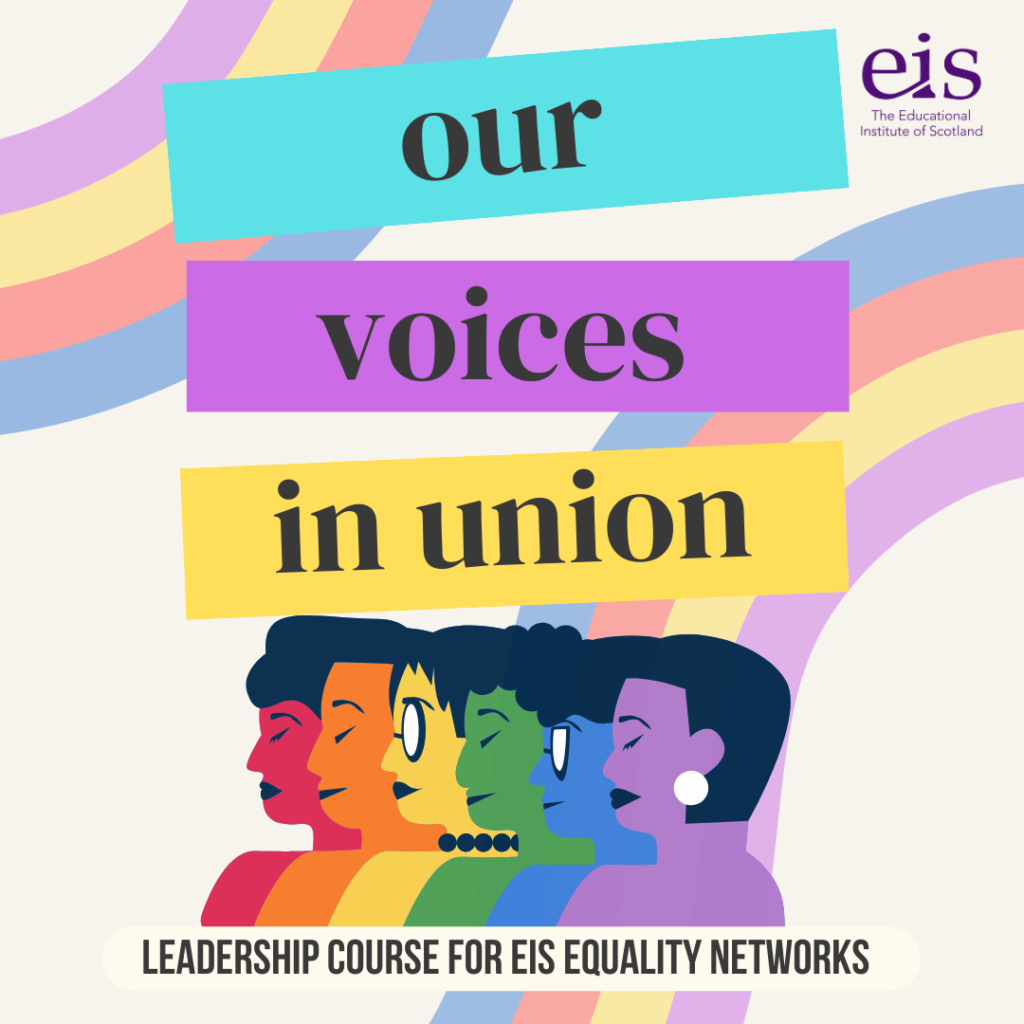
About this topic
The EIS has played an essential role in the planning and implementation of LGBT education in Scotland. The EIS affiliated with the TIE campaign in 2017 and EIS members have been involved with leading the work on designing resources and curricular plans for LGBT+ inclusive education.
The EIS has a LGBT informal network, and LGBT sub-committee, which feeds directly into the work of the EIS Equality Committee, and advises on LGBT issues. In 2023, EIS published “The Power of LGBT inclusive Education”, with advice on how members can take this forward.
The expert video for this topic is provided by Co-Founder and Director of Time for Inclusive Education, Jordan Daly.
Reflective question:
Think back to when you yourself were at school, in relation to LGBT inclusive education. Are there any differences, or similarities you can detect, now?
Learning points:
Scotland’s commitment to LGBT inclusive education came 19 years after the repeal of Section 28, which effectively prohibited the teaching of LGBT inclusive education.
Section 28 also known as Section 2A, was a piece of legislation introduced by Thatcher’s Conservative government, that effectively prohibited the “promotion of homosexuality” by local authorities. It was in effect from 1988 to 2000 in Scotland. One of the first legislations enacted by the new Scottish Parliament was to repeal this section, after a successful campaign led by the Equality Network.
There was an earlier attempt to repeal the legislation introduced by the Labour Government in Westminster, but this was defeated. Theresa May, then Shadow Education Secretary called it a “victory for the common sense”. It would take until 2003 for the clause to be repealed in England and Wales.
In relation to schools, the section prohibited schools to ”promote the teaching in any maintained school of the acceptability of homosexuality as a pretended family relationship”. There was widespread confusion with regards to what constituted such “promotion” and fear, therefore, with regards to engaging in any form of discussion related to LGBT families or lives.
Although over 20 years have passed since Section 28 was repealed, there will still be many education professionals who may feel worried about teaching LGBT inclusive education, and are unsure about whether they are permitted to do so. It is important therefore that educators are supported in becoming confident in this area.
View our archived material on Fair-Work within Scotland’s education system